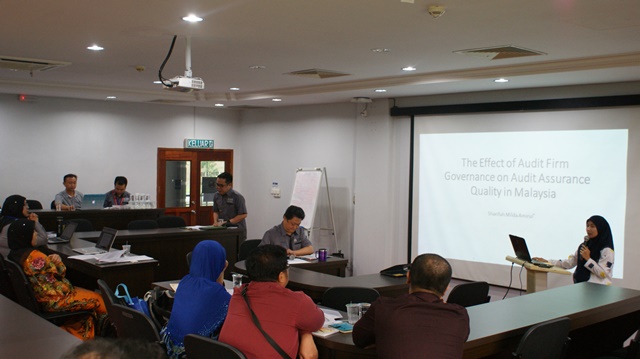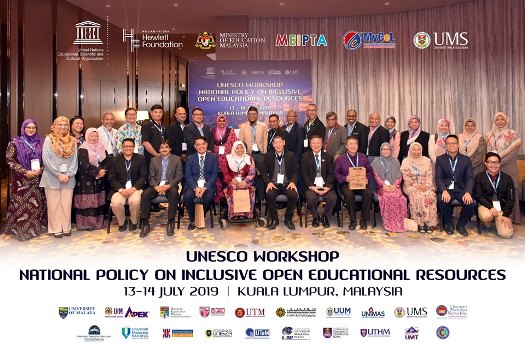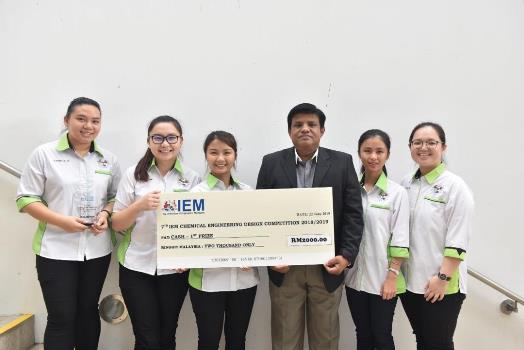 WEDNESDAY, 17 JULY - Universiti Malaysia Sabah (UMS) through Faculty of Medicine and Health Sciences are actively engaging stakeholders for collaboration in research on Malaria.
WEDNESDAY, 17 JULY - Universiti Malaysia Sabah (UMS) through Faculty of Medicine and Health Sciences are actively engaging stakeholders for collaboration in research on Malaria.
Recently, Dr Jenarun Jelip from the Disease Control Division of Ministry of Health, Putrajaya, joined a meeting where he shared with the faculty the current situation of malaria in Malaysia.
According to Dr. Jenarun, Malaria, a disease caused by plasmodium parasites which spread through mosquitoes infected with the parasite, is one of the major public-health problems, with over 40% of the world’s population are at risk for malaria infection.
“According to Ministry of Health Malaysia, the incidence rate in Malaysia has declined to less than 1 per 1,000 population since 1998 and it is together observed with the reduction in the mortality figures, while the mortality rate due to malaria has been around 0.001 per 1,000 population since 2006,” said Dr Jenarun Jelip.
He added that the current threat is the zoonotic malaria, with rising numbers.
“Infections with this parasite can be fatal in the absence of prompt recognition of the disease.
Besides that, resistance of parasites to antimalarial agents has led to increasing difficulties for the provision of adequate disease management,” he added.
Various topics from research gaps in malaria, future collaboration, ideas on attachment programs and many more were discussed during the meeting that chaired by the Dean of Faculty of Medicine and Health Sciences Professor Dr Mohammad Saffree Bin Jeffree.
Meanwhile, Professor Dr Mohammad Saffree said UMS through Faculty of Medicine and Health Sciences is committed to bring impactful research in public health to benefit the stakeholders including the local community.
“The university also wants to ensure our students especially from Masters in Public Health and Doctor of Public Health are engaged in translational research that they could apply to the needs of the state and country.
“The plan now is for Malaysia to have an elimination status for malaria by the year 2020 and currently we are on a good track to achieve it,” said Professor Dr Mohammad Saffree.
Also joined the meeting faculty’s Head of Community and Family Medicine Department Datuk Dr Mohd Yusof Ibrahim, Director of Borneo Medical and Health Research Centre, Professor Dr Kamruddin Ahmed and along with other members of the faculty.
 FRIDAY, 2 AUGUST - The third edition of the Accounting Research Seminar was successfully organised by Accounting Centre, Faculty of Business, Economics and Accountancy (FBEA), Universiti Malaysia Sabah (UMS) at MBA Seminar Room recently.
FRIDAY, 2 AUGUST - The third edition of the Accounting Research Seminar was successfully organised by Accounting Centre, Faculty of Business, Economics and Accountancy (FBEA), Universiti Malaysia Sabah (UMS) at MBA Seminar Room recently.


 The workshop was organized by Professor Dr. Fong Soon Fook, Country Consultant, UNESCO who is the Director of the Center for E-learning at Universiti Malaysia Sabah in association with UNESCO, the Ministry of Education, Malaysian Center for e-Learning (MyCEL), Malaysian e-Learning Council for Public Universities (MEIPTA), Higher Educational Institutions from across the nation, representatives from the Malaysian Association for the Blind, Department of Social Welfare, “Wacana Austisme” and the Malaysian Federation for the Deaf. The workshop on the development of the draft policy was organized with the generous support of the William and Flora Hewlett foundation.
The workshop was organized by Professor Dr. Fong Soon Fook, Country Consultant, UNESCO who is the Director of the Center for E-learning at Universiti Malaysia Sabah in association with UNESCO, the Ministry of Education, Malaysian Center for e-Learning (MyCEL), Malaysian e-Learning Council for Public Universities (MEIPTA), Higher Educational Institutions from across the nation, representatives from the Malaysian Association for the Blind, Department of Social Welfare, “Wacana Austisme” and the Malaysian Federation for the Deaf. The workshop on the development of the draft policy was organized with the generous support of the William and Flora Hewlett foundation. WEDNESDAY, 17 JULY - Universiti Malaysia Sabah (UMS) through Faculty of Medicine and Health Sciences are actively engaging stakeholders for collaboration in research on Malaria.
WEDNESDAY, 17 JULY - Universiti Malaysia Sabah (UMS) through Faculty of Medicine and Health Sciences are actively engaging stakeholders for collaboration in research on Malaria. TUESDAY, 9 JULY - The Centre for E-learning, Universiti Malaysia Sabah (UMS) organised a Technology Enabled Learning Carnival (TELC) 2019 in UMS, here, recently. Technology Enabled Learning is rapidly evolving into a driver of the education industry. Digital innovations which promote digital teaching and learning at all levels are set to disrupt conventional methods of teaching and learning.
TUESDAY, 9 JULY - The Centre for E-learning, Universiti Malaysia Sabah (UMS) organised a Technology Enabled Learning Carnival (TELC) 2019 in UMS, here, recently. Technology Enabled Learning is rapidly evolving into a driver of the education industry. Digital innovations which promote digital teaching and learning at all levels are set to disrupt conventional methods of teaching and learning. WEDNESDAY, 3 JULY - Universiti Malaysia Sabah (UMS) Plant Design Team emerged as the overall champion for the 7th IEM Chemical Plant Design Competition 2018/2019, organised by the Institute of Engineers, Malaysia (IEM) in Universiti Teknologi Petronas (UTP), Perak recently.
WEDNESDAY, 3 JULY - Universiti Malaysia Sabah (UMS) Plant Design Team emerged as the overall champion for the 7th IEM Chemical Plant Design Competition 2018/2019, organised by the Institute of Engineers, Malaysia (IEM) in Universiti Teknologi Petronas (UTP), Perak recently.